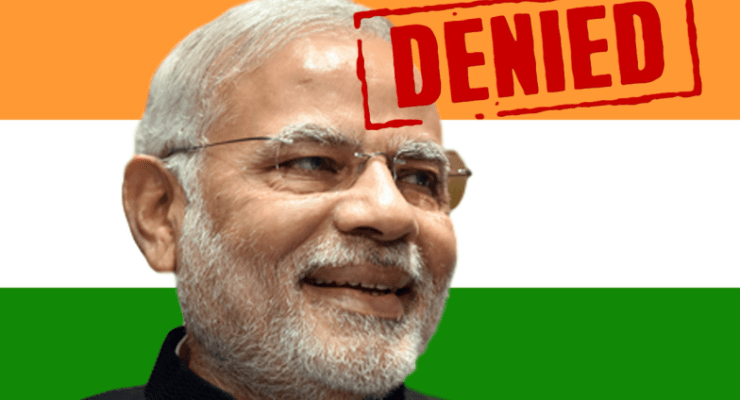
Two weeks after the ABC’s Late Night Live program was due to fly out to India, authorities have still not explained why their visas weren’t granted.
Veteran broadcaster and the show’s host Phillip Adams told Crikey that his team had planned interviews with a “who’s who of prominent Indians”, for stories to be played out over several months on his Radio National program.
“The last time Late Night Live was there was 20 years ago and we though it was time to go back and give a progress report,” Adams said. “We were not expecting the slightest problem.”
Producer Amruta Slee said she’d been planning the trip for about a year, and they applied for their visas in December on the advice of the contractors who process Indian visas, and was advised it should only take a few days to process. But as the leaving date of February 1 approached closer, Indian authorities had a few odd questions, including asking where the radio program would be filming, and suggesting a handler would be provided to stick with the program. Days before the group was due to leave, they were advised they would need to postpone, and since then have not been able to get an answer at all from authorities on what the problem was with the visa.
Slee said Four Corners‘ Adani story had been mentioned to her when discussing the trouble she’d had obtaining the visas with various sources — a claim we put to the Consulate General of India in Sydney, who did not respond to Crikey‘s request for comment.
But Slee said she didn’t know whether the ABC’s visa trouble could boil down purely to the Adani story. “We were going to do stories about media crack-downs in India, which was bigger than Adani. It’s something about contemporary India,” she said. “And the people I’ve spoken to in India since, they just keep saying, ‘I’m not surprised’.”
The trip was partly funded by the Australia India Council, a body operating under the Department of Foreign Affairs and Trade. DFAT told Crikey it had “made representations” in Canberra and New Delhi in an effort to facilitate Late Night Live‘s trip “through the timely issuing of visas”.
In last year’s Reporters Without Borders press freedom index, India slipped three points to 136th out of 180 countries. In its report, the watchdog said self-censorship was growing in the mainstream media, but prosecutions were also being used to gag journalists critical of the government. In January, police filed a criminal complaint against a journalist who’d a day earlier broken a story about potential vulnerability in India’s national identity system.
In September last year, two journalists were killed, prompting widespread protests and concerns about press freedom in India. Journalist and activist Gauri Lankesh, who’d been critical of the ruling Bharatiya Janata Party was shot and killed outside her house. And a few weeks later, Santanu Bhowmik was abducted and beaten by a local separatist group, and later died from his injuries. In 2016 and 2017, five journalists were murdered in India, according to the Committee to Protect Journalists.
In its statement to Crikey, DFAT said a free press was in India’s best interests:
“Australia believes that freedom of the press is a fundamental part of a functioning democracy. India has a robust and diverse media industry and, like other democracies, its institutions will continue to benefit from a free and vibrant press.”
Adams said that in his travel to India over the past 50 years, including with the program and writing a book about the country, he hadn’t anticipated any trouble in his program’s plans to go back this year.
“The real problem for the ABC is if they’re saying no to me, what’s going to happen to news and Four Corners and Foreign Correspondent?” he said. “This is a major trading partner and they’re blocking Australian journalists.”








Seems as though when one person puts up a fence, so does the rest of us…
But what about the Quad and the rules based order.. oh well. How does any of this even work. We live in an Alice in upside down world.
Ohhhh, the Big Silence, is happening I did not think it would happen this soon, Investigative journalism is being quietly pushed aside all around the western world, what exciting times we live in, I will have to tell my Grandchildren a few times to make them familiar with the concept of Investigative journalism.
“Australia believes that freedom of the press is a fundamental part of a functioning democracy. India has a robust and diverse media industry and, like other democracies, its institutions will continue to benefit from a free and vibrant press.”
Hmm…seems a major government department (Australian not Indian) is out of step with some of its own government’s draconian legislative proposals.
I was apprehensive when the BJP took office but have been constantly amazed and heartened by Modi’s record so far.
Adams’ first interview this week with his Indian correspondent further impressed me with good report,not least the man’s personal probity.
I wish that wondrous land all the best, with more hope than for many years.